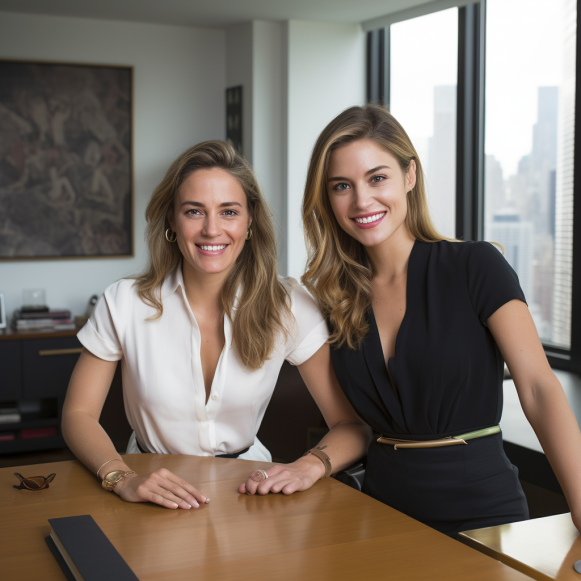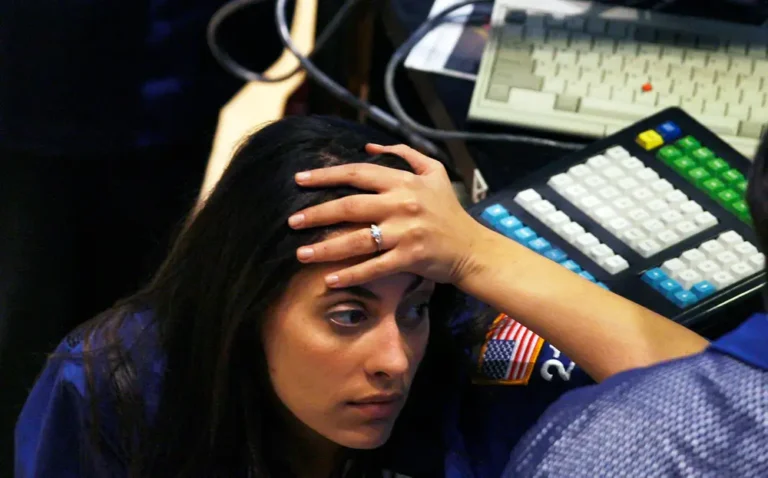Inside the real-estate network for women that costs thousands but is helping investors build long-term wealth and achieve financial freedom

- Tresa Todd founded the Women’s Real Estate Investors Network (WREIN).
- Women are getting in the door by taking a $17 online class and then an optional mentorship program.
- It’s a 5-figure investment they are banking on making back through the knowledge and network gained
Brenda Stroud’s Facebook feed was flooded with ads for real-estate investing courses in late 2020.
“It was $17, which was inviting,” she explained to Insider.
Stroud was encouraged to join the mentorship program after completing the seven-day class taught by Dallas-based real-estate investor and coach Tresa Todd. It provides members with access to six coaches, multiple coaching calls per week, and a growing investor network.
Stroud was no newcomer to real estate investing; she had dabbled in it but hadn’t made much money from it.
Joining the Women’s Real Estate Investors Network (WREIN) would require a much larger initial outlay than the course. Todd does not publicly post the price because it fluctuates and she is still testing different price points, but it is a five-figure investment.
Stroud couldn’t afford it at the time, but she felt it was what she needed to meaningfully scale her portfolio. So she decided to ask her friends for loans.
“I was so excited,” she said of raising the money by the end of the week, “and I think my confidence and excitement kind of passed on to them, and they were excited for me.”
The WREIN story: From in-person gatherings to an online community of thousands of investors
Todd founded the network after seeing firsthand how easy it is to build wealth through real estate investing. She became interested in real estate after realizing she needed to supplement her 401(k) funds if she hoped to retire.
“Anybody can do it,” said Todd, who started with wholesaling because she didn’t have enough money to do traditional real-estate investing. “It makes no difference where you are economically, how old you are, or what level of education you have.” You simply must be coachable and willing to learn specific strategies.”
Todd began to feel that something was missing in the industry after a little more than a year of experimenting with wholesaling, eventually flipping properties and buying rentals.
“I kept complaining to my sons: ‘Where are all the women?'” she explained. Not only did her region seem to lack female investors: According to data from the online recruitment company Zippia, only 32% of real-estate investors in the United States are women.
“They told me, ‘Well, mom, start something.'” I had only 14 months of experience and thought to myself, ‘I can’t. ‘Someday, I will.’ And they told me, ‘Just do it now.'”
That was around March of this year. She agreed to host a meetup, but only for the next six months.
When August rolled around, she had no idea who would show up. “I was blown away,” she said, when 40 women showed up. “And I just taught what I knew.”
She continued to hold in-person meetings every two weeks and quickly outgrew her office space, prompting her to begin offering live, three-day teaching events as well as developing a master class and a mentorship program.
When the pandemic struck in March 2020, she was forced to cancel the live meetings and switch to online instruction. That was the point at which the network truly took off.
“It went insane. Todd stated, “We had 599 ladies sign up for the first online program.”
How Stroud and other women used the WREIN to increase their wealth
One advantage of participating in the mentorship program is the educational component.
Todd and the other WREIN coaches teach women from various real-estate backgrounds how to get started and, eventually, how to scale their businesses. A key component of the program is learning how to use “other people’s money” to fund deals so that any woman, regardless of her income or savings account, can profit from real estate.
However, perhaps more important than learning specific strategies is the members’ access to other female investors.
Stroud, who resides in Georgia but primarily invests in Tuskegee, Alabama, has completed approximately 15 transactions since joining the network. She invests with her son, and while they put up some of their own money, WREIN investors fund the majority of their deals.
“I go to the network and present it,” she said, whenever she finds a deal she wants to pursue, whether it’s a flip or a long-term rental.
When it comes to selling flips, she also relies on her network. One “WREIN sister,” as she refers to them, purchased two properties in Tuskegee that she flipped.
“Once we get all our rehabs done, then we’ll really be able to focus on returns instead of money going out for other rehabs,” she and her son said of reinvesting their flip profits back into their rental properties. Then we’ll truly understand the long-term benefits of what we’re cultivating in our portfolio.”
For the time being, she is content with what she has.
“I really don’t want to be wealthy or rich,” said Stroud, who has repaid the money she borrowed to join the WREIN. “I want to be comfortable while also being able to do the things I enjoy doing, such as building in this community.”
The most valuable aspect of the network: forming alliances with other female investors.
Mary Verratti and Brigette Davitt are building an impressive real-estate portfolio in Pittsburgh, Pennsylvania.
After taking the masterclass and joining the network, the two met about two years ago.
Davitt, who was a full-time college professor but had been investing in real estate for about a decade on the side, saw the program as a wise investment in herself.
“People have no problem investing hundreds of thousands of dollars in a four-year or more education,” she explained. “This was very small in comparison to the amount of knowledge that I could see I would receive.”
Verratti had never owned an investment property before, but he was considering changing careers at some point.
She began looking into real estate after seven years at Amazon. That’s when the ads started appearing on her phone.
When she saw an advertisement for WREIN, she was intrigued enough to enroll. “For me, it was a no-brainer,” she said of joining the network, “but I was also in a good financial position because I did have a W-2 and made good money doing that.”
Verratti was living in Seattle but had plans to relocate to Pittsburgh, where she was born and where Davitt currently resides. They met through the WREIN Facebook page, and when Verratti returned, they decided to buy property together.
They have purchased and renovated over a dozen properties in the Pittsburgh area over the last two years and currently manage multiple short-term rentals.
“We started going and looking at houses together,” Davitt recalled. “We got a property under contract, bought it, got another under contract, bought that — and here we are 20 properties later.”
Their successful real estate business has enabled them to both quit their jobs.
They’ve had access to educational tools since joining the WREIN, but the real value is in the relationships they’ve formed with each other and other network members.
“We’ve gotten all of our private money from the other women in the group, and I don’t see that changing anytime soon,” Verratti explained. “It just makes the deal that much better when you can work with people who already share your values.”
Seeing other women succeed in real estate is an added bonus, she says: “I don’t think I ever even considered owning my own business or being a woman in real estate until I saw that it was possible through the women who were doing it.”
The program will have over 4,100 women enrolled by August 2023. That’s what you’re investing in, as Stroud, Verratti, and Davitt pointed out: relationships with other like-minded women looking to turn their financial lives around and build generational wealth.
“The women in the network are absolutely the best part,” Todd said. “These are women who have decided to invest in themselves, and we are looking for ambitious, positive women who can encourage and inspire.”
Furthermore, they each have something unique to offer: “We have women who have money but don’t have the time to go through deals, and we have women who don’t have much money but have the time, so they have the opportunity to partner up.” Alternatively, someone may be good at finding deals but not so good at negotiating. The beauty is that they can find a partner. You don’t have to know everything or be good at everything.”






